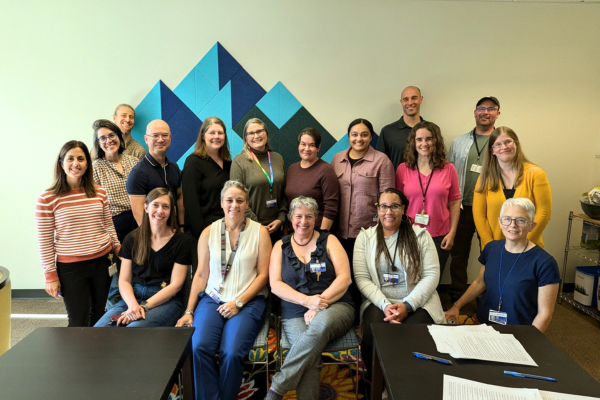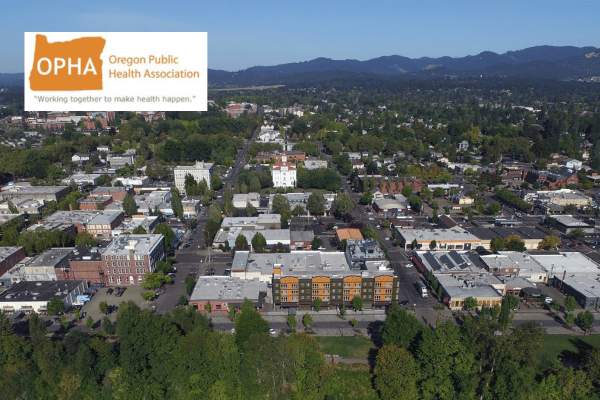CORE selected to create an evaluation design for Oregon's 2022-2027 Medicaid waiver
- The Oregon Health Authority (OHA) has selected the Portland, Oregon-based Center for Outcomes Research & Education to create an evaluation design for Oregon's 2022-2027 1115 Medicaid waiver.
- The initiative will shape how Oregon measures the success of several innovative 1115 waiver benefits and services for eligible Oregon Health Plan members.
- CORE will work with OHA to seek input and feedback on its evaluation design plans from a variety of Oregon partners.
We are pleased to announce that the Oregon Health Authority (OHA) has selected the Providence Center for Outcomes Research & Education (CORE) to develop the evaluation design for Oregon's 2022-2027 1115 Medicaid waiver. This initiative will shape and guide how Oregon measures the success of its innovative 1115 waiver benefits and services for eligible Oregon Health Plan (OHP) members.
OHP is Oregon's Medicaid program, a vital resource for approximately 1.5 million Oregonians. It provides health care coverage for people from all walks of life, including working families, children, pregnant people, single adults and seniors. The 2022-2027 waiver, approved by the Centers for Medicare & Medicaid Services (CMS), allows Oregon to pioneer innovative practices to promote high-quality, evidence-based, coordinated, and integrated care for OHP members through several focus areas, including:
- Continuous OHP eligibility and enrollment for children up to age six.
- Keeping OHP members ages six and older covered for two years before they need to renew, instead of one.
- Extended OHP eligibility for young children, youth, and adults between 138-200 percent of the federal poverty level.
- Covering supports for health-related social needs for eligible OHP members. These benefits are anticipated throughout 2024 and 2025 and include support for food, housing, and climate-related resources.
- Coverage for young adults with special health care needs up to age 26.
CORE is an independently funded team of scientists, researchers, and data experts based in Portland, Oregon. As part of the waiver, the state must secure an independent evaluation partner. Through a competitive proposal process, CORE was selected to launch the first phase of this work, which involves developing a robust design to evaluate the waiver initiatives. OHA's selection of CORE reflects the team's significant evaluation expertise, cross-sector partnerships, experience working with and studying Oregon's Medicaid program, and commitment to advancing health equity.
Project overview: Three key areas
In collaboration with OHA and OHP partners and members, CORE will focus on three major components:
- Formulating an interested parties engagement plan to gain input and insight from a diverse range of groups and individuals.
- Developing a robust evaluation design leveraging input from interested parties.
- Gathering input and recommending ongoing governance processes for evaluation implementation.
The aim is to produce a rigorous evaluation design informed by the experiences of OHP beneficiaries, community-based organizations, Coordinated Care Organizations (CCOs) and other interested parties, as well as a commitment to health equity and transparency.
For questions or comments, contact OR1115WaiverEval@providence.org.
About CORE
The Center for Outcomes Research & Education (CORE) is an independent team of scientists, researchers, and data experts with a vision for a healthier, more equitable future. Based in Portland, Oregon, we work with communities and a wide variety of cross-sector partners to take on today's biggest barriers to better health and deliver insights that help shape and sustain healthier systems, policies, programs, and people.
Related resources
- CORE OR 1115 waiver evaluation design resources
- CORE Highlighted project: The Oregon Health Insurance Experiment
- OHA information on the 2022-2027 Medicaid 1115 Demonstration Waiver
- Past OHA evaluation reports and presentations
- Blog post: Evaluating a 10-year community power-building initiative
- Blog post: Data-driven insights for a healthier Oregon: The Health Share analytics project




